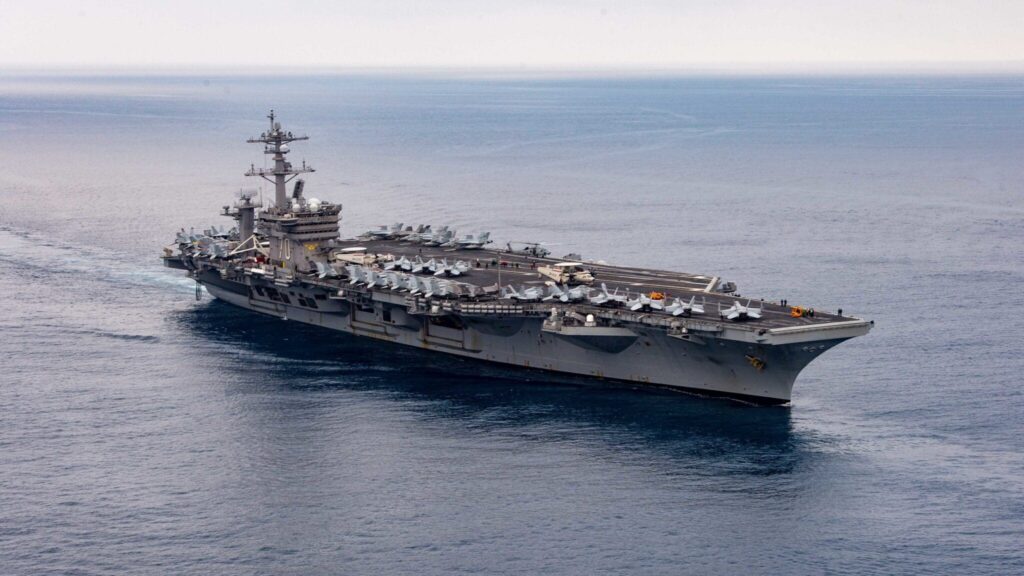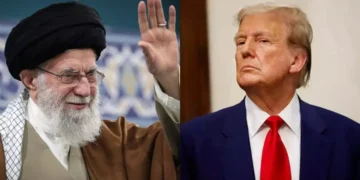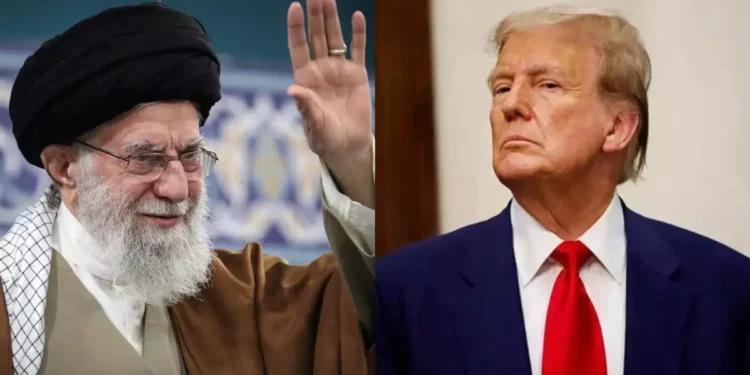In a sharp warning to Iran, former President Donald Trump has stated that the country must abandon any ambitions of acquiring nuclear weapons, or face severe repercussions. The statement, made during a recent public appearance, comes as tensions between the United States and Iran continue to simmer over nuclear proliferation and regional stability.
Trump’s remarks echoed his previous stance on Iran’s nuclear program during his presidency, when he pulled the United States out of the 2015 Joint Comprehensive Plan of Action (JCPOA), also known as the Iran nuclear deal. The deal had lifted sanctions on Iran in exchange for limitations on its nuclear activities, but Trump criticized it as a flawed agreement that did not go far enough in preventing Tehran from developing nuclear weapons in the future.

In his latest comments, Trump emphasized that the U.S. would not tolerate a nuclear-armed Iran, a scenario that could shift the balance of power in the Middle East and pose a threat to American allies in the region, including Israel and Saudi Arabia. “Iran must understand that if they continue to pursue nuclear weapons, the consequences will be dire,” Trump said, without specifying what actions the U.S. might take.
The former president’s comments come at a time when the Biden administration has been attempting to revive negotiations with Iran to return to the nuclear deal. However, talks have stalled, with both sides blaming each other for failing to meet the conditions necessary for a breakthrough.

Iran has insisted that its nuclear program is for peaceful purposes, such as energy production and medical research, but many world leaders, particularly in the West, remain skeptical. The country’s development of ballistic missile technology and its involvement in proxy conflicts across the Middle East have further heightened concerns about its intentions.
The threat of military action, while not directly mentioned by Trump, has been a longstanding part of the rhetoric surrounding Iran’s nuclear ambitions.
During his presidency, Trump ordered the assassination of General Qassem Soleimani, a high-ranking Iranian military official, in an effort to curb Iran’s influence in the region. Since then, military experts have warned that any military confrontation over Iran’s nuclear program could lead to a broader conflict with severe global consequences.
International reactions to Trump’s warning have been mixed. Some of America’s allies in the Middle East, particularly Israel, have expressed support for Trump’s hardline approach to Iran. Israeli officials have long warned that Iran’s nuclear ambitions could lead to a destabilized region, with the possibility of a nuclear arms race in the Middle East. On the other hand, European powers, which have been more supportive of diplomatic engagement with Iran, have cautioned against escalating tensions further.
Iran’s response to Trump’s comments has yet to be fully articulated, but Tehran has consistently maintained that its nuclear program is intended solely for peaceful purposes and that any military action would result in retaliation. Iranian officials have also warned that if the U.S. continues to impose sanctions and undermine diplomatic efforts, the country could accelerate its nuclear activities.
As the situation unfolds, it remains to be seen whether diplomatic talks will resume or if tensions will escalate further. What is clear is that Iran’s nuclear program remains one of the most pressing issues in international relations, and the consequences of failure to reach a peaceful solution could have far-reaching effects on global security.
Also Read : Delhi CM Enforces ‘Zero Tolerance’ Policy, Acts Against School Over Fee Hike 2025















 Categories
Categories










